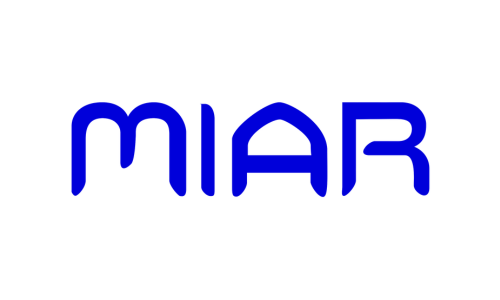Therapeutic Effect and Safety of Early Treatment of Patent Ductus Arteriosus with Oral Ibuprofen in Preterm Infants
Abstract
Background: Patent ductus arteriosus (PDA) is a common problem encountered in premature infants, especially those with respiratory distress syndrome. PDA can lead to life-threatening complications. Intravenous ibuprofen was shown to be as effective and to cause fewer side effects. If ibuprofen is effective intravenously, it will probably be effective orally too. Aim: This study was designed to determine the effectiveness and safety of oral ibuprofen compared to IV ibuprofen or no intervention for closing a PDA in preterm infants with RDS. Material and methods: A prospective study, randomized, a blindfold was conducted in NICU, at UOGH "Koço Gliozheni", Tirana, from February 2010-August 2013. The study included a total of 128 preterm infants, 28-35 weeks, ≤2500gr birth weight, in the first 48-96 hours of life, with SDR and confirm the presence of DBA's (Ǿ≥1.5mm) by echocardiographic examination. Infants were treated with Ibuprofen oral, intravenous Ibuprofen, no medical interventions, in randomized order. The cycle of treatment: 10 + 5 + 5/mg/kg, every 24 hours. Were highlighted the basic characteristics of infants included in the study, the effectiveness of treatment (closure of DBA's), side effects, complications, and the effectiveness of treatment. For continuous variables were calculated the average and standard deviation. The p≤0.05 value was accepted as statistically significant. All tests are two-sided. RR and OR were presented with 95% CI. Results: 38 infants were treated with Ibuprofen oral, 35 infants with intravenous Ibuprofen and 37 infants underwent no medical intervention. The effectiveness of early treatment: DBA remained open, after early treatment, in 7foshnja (18.4%) in group oral Ibuprofen vs 20 infants (54%) in the group that did not undergo any medical intervention [RR = 0.34; 95% CI = 0.16-0.7; p = 0.04], vs 6 infants (17.1%) in the group of intravenous Ibuprofen [RR = 1.07; 95% CI = 0.4-2.8; p≥0.05]. There was observed no statistically significant change of direction of side effects and complications, p≥0.05. Conclusions: Oral Ibuprofen is an effective and safe alternative when used for the treatment of DBAs to babies born prematurely and with low birth weight.
Keywords: DBA, preterm births, Ibuprofen, treatment of early/late, side effects, complication.
Downloads
Published
How to Cite
Issue
Section
License
Declaration/Copyright transfer:
1. In consideration of the undertaking set out in paragraph 2, and upon acceptance by ANGLISTICUM for publication of the manuscript in the Journal, I/We hereby assign and transfer publication rights to ANGLISTICUM, whereas I/We retain the copyright for the manuscript. This assignment provides ANGLISTICUM the sole right and responsibility to publish the manuscript in its printed and online version, and/or in other media formats.
2. In consideration of this assignment, ANGLISTICUM hereby undertakes to prepare and publish the manuscript in the Journal, subject only to its right to refuse publication if there is a breach of the Author’s warranty in paragraph 4 or if there are other reasonable grounds.
3. Editors and the editorial board of ANGLISTICUM are empowered to make such editorial changes as may be necessary to make the Manuscript suitable for publication.
4. I/We hereby acknowledge that: (a) The manuscript submitted is an original work and that I/We participated in the work substantively and thus I/We hereby are prepared to take public responsibility for the work; (b) I/We hereby have seen and approved the manuscript as submitted and that the manuscript has not either been published, submitted or considered for publication elsewhere; (c) The text, illustration, and any other materials included in the manuscript do not infringe upon any existing copyright or other rights of anyone.
5. I/We hereby indemnify ANGLISTICUM and the respective Editors of the Journal as mentioned in paragraph 3, and hold them harmless from any loss, expense or damage occasioned by a claim or suit by a third party for copyright infringement, or any suit arising out of any breach of the foregoing warranties as a result of publication of the manuscript.













